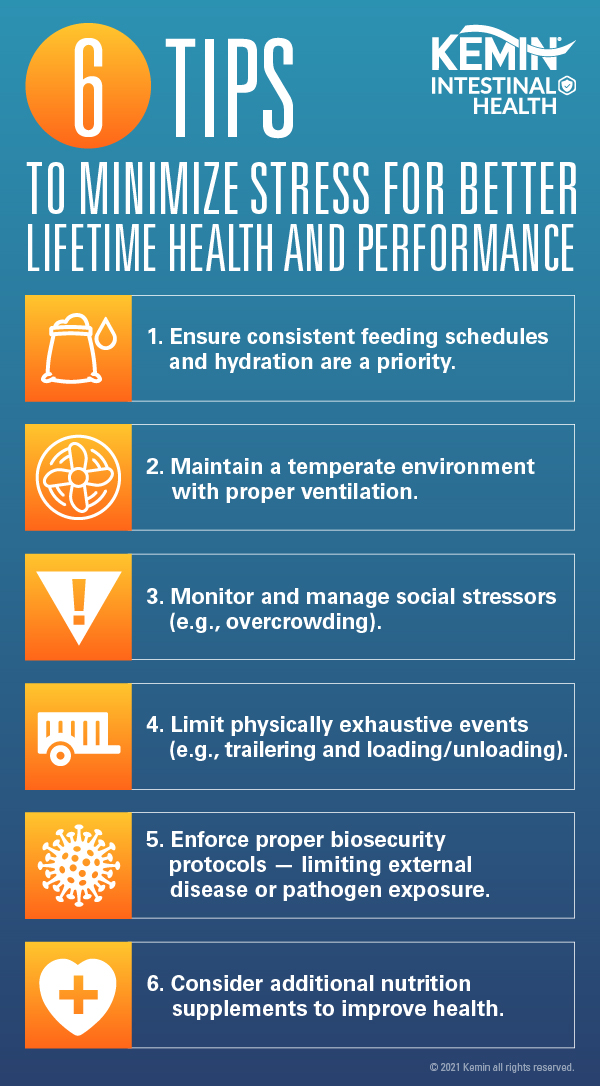Gut health is important throughout an animal’s life. But it’s particularly important early in life when gut health contributes to the development of a number of critical systems and functions including the gut itself. Poor gut health — which can be brought on by an array of microbial, social, environmental and physiological stressors — can lead to systemic health problems and reduced performance throughout an animal’s life.
Early life is also an important stage for the development of gastrointestinal microbiota — the primary bacterial colonizers of the gut whose establishment and balance are key to proper gut health and overall wellbeing. Stress early in an animal’s life can have a significant impact on the microbiota. When faced with certain stressors, the microbial population in the gut becomes imbalanced and in turn, the animal becomes more vulnerable to other stressors and less capable of staving off illness related to pathogens. Ultimately, that can lead to inflammation, leaky gut and a range of other health problems that might otherwise be naturally overcome by a healthy animal.
Paying close attention to a few key conditions and health priorities in the early weeks of life of an animal's life can help to ensure proper gut health development and prevent these issues from occurring. Minimizing stressors that may impact your animals, for instance, is a major component of building a healthy gut and immune system.
"In pigs, calves and horses, this critical time window of gut health function development takes place in the first several weeks of life. This includes the establishment of a balanced microbiota, development of the intestinal barrier, mucosal immune system, enteric nervous system and hypothalamic pituitary axis," said Adam Moeser, MS, Ph.D., DVM, director of the Gastrointestinal Stress Biology Laboratory at Michigan State University. "The microbiome starts getting established early, and as the gut is developing in its new post-natal environment and getting exposed to new antigens and pathogens in the outside world, the gut is shaping itself for long-term function."
A look at key systems that influence gut health and immunity
The development of specific systems and physiological processes during early gut and microbiome development is important to a range of critical internal functions:
- Microbiota: While not an organ per se, a balanced microbiome is critical to prevention of pathogen entry, gut health and over all wellbeing throughout an animal’s life. Imbalance leads to making the animal susceptible to other diseases.
- Intestinal barrier: Absorbs nutrients and prevents potentially toxic molecules from colonizing and damaging other internal tissues. The intestinal barrier and the tight junctions that reinforce it must be strong in order to prevent a “leaky” gut.
- Mucosal immune system: Provides a first line of defense against antigens and infections and prevents systemic immune responses to common bacteria and food proteins. In fact, about 70% of an animal’s immune system resides in the gut.
- Hypothalamic pituitary-adrenal axis: Regulates the animal's hormonal, behavioral and physiological responses to stress.

